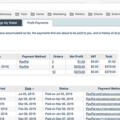World’s biggest banks paying $386 million to settle allegations of price-fixing Fannie Mae, Freddie Mac bonds
Sixteen of the world’s biggest financial institutions will pay a total of $386.5 million to settle claims that the banks conspired to fix the prices of bonds issued by Fannie Mae and Freddie Mac over a seven-year period.
Earlier this year, Pennsylvania Treasurer Joe Torsella filed a proposed class action lawsuit on behalf of the state, alleging that a number of banks, including Deutsche Bank, Goldman Sachs, Barclays, Citigroup, JPMorgan Chase, and several others, conspired to both overcharge and underpay investors on debt bonds issued by Fannie and Freddie between 2009 and 2016.
After suing the 16 financial institutions, Pennsylvania was eventually named the representative for a class that included several pension funds that all invested in the bonds in question.
According to Torsella’s office, twelve of the financial institutions agreed to a proposed settlement that would see the companies pay $250 million in damages for the benefit of the class.
The settling companies are: BNP Paribas; Cantor Fitzgerald; Citigroup Global; Credit Suisse; HSBC; J.P. Morgan; Merrill Lynch, Pierce, Fenner & Smith.; Morgan Stanley; Nomura Securities; SG Americas; TD Securities; and UBS Securities.
Deutsche Bank, First Tennessee Bank, Goldman Sachs and Barclays previously agreed to separate settlement agreements.
According to a Reuters report, Barclays settled for $87 million for its actions as the underwriter of most of the bonds in question. Deutsche Bank, First Tennessee, and Goldman Sachs settled for $49.5 million total.
In total, the full settlement will be $386.5 million.
It’s important to note that the bonds referenced in the lawsuit were not mortgage bonds. They are bonds issued by the government-sponsored enterprises to support their operations.
The bonds are traded “over the counter,” which means that investors work with the bond trading desks at the named institutions to buy and sell the bonds.
Since the bonds are not traded on a public exchange, the broker wields more control over pricing, as comparative bond trading is not made public. Bond values must then be derived based on a price the buyer is willing to pay and what the seller is willing to sell for; known as derivative trading.
The lawsuit claimed that the named institutions conspired to fix the prices on those bonds, which allowed them to underpay sellers and overcharge buyers, keeping more profits for themselves.
According to the lawsuit, Torsella’s office obtained the pricing data for more than 13,000 unique FFBs and a total of 1.6 million FFB transactions. The lawsuit stated that the data showed “highly anomalous” pricing on the Fannie and Freddie bonds, including highly inflated, “supracompetitive” prices on newly issued bonds.
Additionally, the lawsuit claimed that the financial institutions inflated the prices of older bonds in the days leading up to the sale of new bonds to establish a higher benchmark, which then allowed them to sell new bonds at higher prices to earn “excess, unlawful profits.”
The lawsuit also claimed that the institutions, rather than competing with each other for Fannie and Freddie bond business, “agreed to inflate the prices at which they sold FFBs to investors (the ‘ask’ price), or deflated the price at which they purchased FFBs from investors (the ‘bid’ price), or both.”
The lawsuit also included evidence of several online chatrooms that the banks’ various traders used to discuss and agree on artificial prices before bringing the bonds to market.
Now, despite denying the class action lawsuit’s claims, the banks are settling.
“The allegations, in this case, were preventable from the start. If the proper safeguards were in place at these banks, we wouldn’t need to be here knocking the door down on behalf of investors who were harmed by the banks’ conduct,” Torsella said in a statement.
“In addition to financial recovery, my focus, in this case, has been and remains to reform the government-sponsored entity bond market, to which most public investors are exposed, so that this conduct is not only corrected but that it is prevented,” Torsella continued. “As a result, some of the largest banks in the nation—for the first time—will implement strong antitrust compliance measures to do just that. I’m proud of the progress that has been made so far and will continue to fight against Wall Street manipulation for Pennsylvania taxpayers.”
Beyond the financial penalty of the settlement, the companies also agreed to “establish and maintain an effective antitrust compliance program” to prevent similar actions from reoccurring.
According to Torsella’s office, the banks must:
- Conduct rigorous employee training
- Establish a “culture of compliance” with strong oversight
- Dedicate resources for oversight
- Ensure consistency with industry best practices via periodic assessment of program by a representative of Pennsylvania Treasury
Each of the banks must also meet with the Pennsylvania Treasury at least once a year for two years after the settlement is finalized to “confirm the adequacy of the compliance program and consider industry best practices.”
The settlement agreement now goes to the District Judge for the Southern District of New York Jed Rakoff for approval.
“Those who invest public dollars are entitled to participate in a market that is truly competitive and free from manipulation. It is my intention to ensure this is less of a hope and more of a certainty in the future,” Torsella said.
“The evidence, in this case, was particularly damning,” Torsella concluded. “The brazen attitude exhibited by Wall Street traders toward public institutional buyers of GSE bonds was shocking.”






